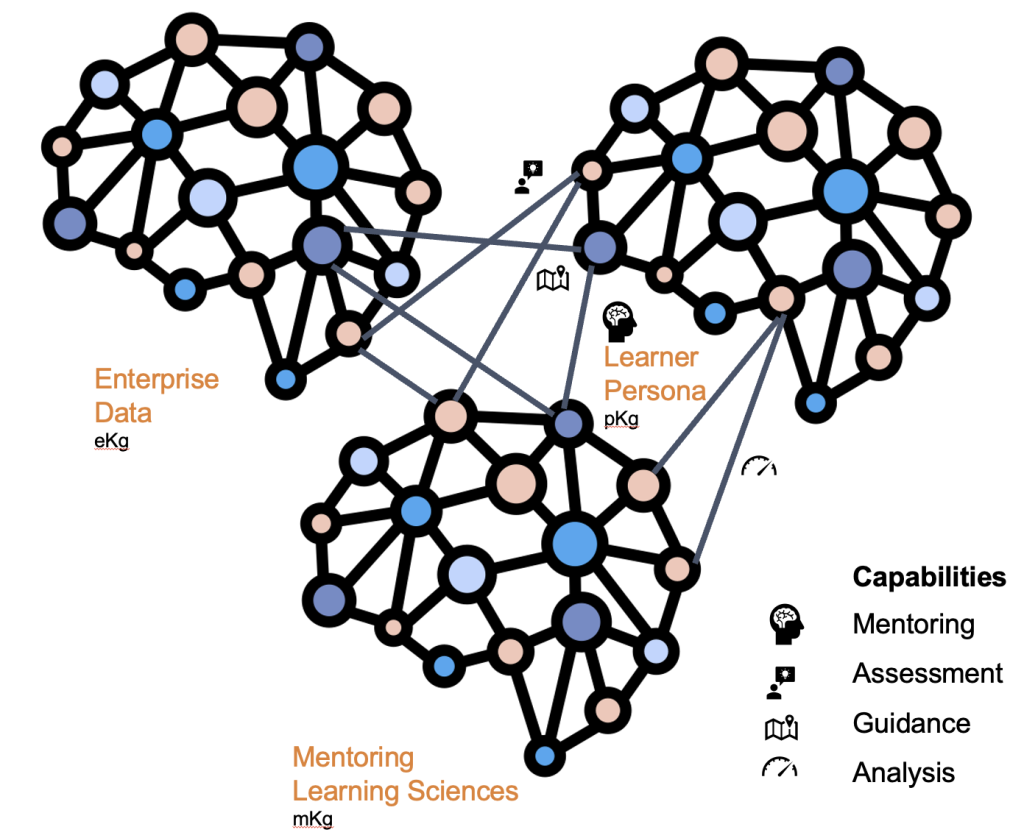Part 2 in 3 part series on AI Role Play

Introduction
Role-playing is a powerful application-based learning tool that enables learners to demonstrate their understanding of a subject by engaging in realistic, interactive scenarios. Unlike passive forms of learning, role-playing requires individuals to actively apply knowledge, adapt to dynamic conditions, and refine their skills in a structured environment.
A fundamental principle in education is that learning must result in a demonstrable and relatively permanent change in knowledge, skills, or behavior. However, assessing true understanding is challenging because it is difficult to measure. Simply asking learners if they understand a concept often yields unreliable results, as “understanding” is internal and subjective.
The solution lies in requiring learners to demonstrate observable skills and behaviors that indicate their comprehension. Role-playing provides a structured yet flexible environment for learners to showcase their abilities, receive feedback, and refine their approach through practice and iteration. While role-playing has gained popularity in EdTech, many applications remain underutilized or traditional in nature. This represents a missed opportunity to leverage its full potential.
Role-Playing Activity Designs
Effective role-playing can take many forms, each tailored to different learning objectives and engagement strategies. Below are some examples of role-playing structures that facilitate active learning and skill development:
Types of Role-Playing Activities
- Simulations & Scenarios – Immersive, real-world experiences that mirror professional or business environments.
- Case Studies – In-depth analysis of situations where learners must make decisions based on provided information.
- Structured Conversations – Guided dialogues that require learners to navigate various responses and adapt accordingly.
- Oral Debates & Argument Defenses – Learners develop critical thinking and persuasive communication skills.
- Interviews & Discussions – Interactive exchanges that encourage exploration of different perspectives.
- Collaborative Group Activities – Team-based role-playing to encourage peer interaction and joint problem-solving.
- “Think-Pair-Share” & Peer Teaching – Encourages knowledge retention by having learners explain concepts to one another.
Each of these activity structures supports active engagement, real-time problem-solving, and deeper cognitive processing—elements critical for skill mastery and knowledge retention.
The Transformative Role of Agentic AI in Role-Playing
What is Agentic AI?
Agentic AI refers to goal-driven autonomous, decision-making AI systems that can simulate human-like interactions, respond dynamically, and personalize experiences in real-time. Unlike pre-scripted chatbots, Agentic AI adapts to learner responses, evolves based on past interactions, and creates immersive, interactive learning environments.
Using Mentor126 upskilling Agentic AI technology in AI-driven role-playing, Mentor serves as a dynamic training partner, capable of adjusting difficulty levels, injecting unpredictability, and providing instant feedback. This has massive implications for sales training, leadership development, customer service coaching, and professional skills enhancement.

- A pKG (personal Knowledge Graph) stores each learner’s individual goals, preferences and style.
- An eKG (enterprise Knowledge Graph) stores the secure index of corporated data plus other attributes such as the corporate style and persona such that interactions can mimic conversations with an enterprise’s media trained ambassador.
- The mKG (Mentor Knowledge Graph) stores the Learning Science Modules expertise (ie, Role Play) and the curator defined Multi-Disciplinary Upskilling (MDU) skills required for a given role play and sets “PAR” the bar for expertise.
Enterprise Role Play
Below are key ways Agentic AI is revolutionizing role-playing experiences in education and enterprise training:
1. Dynamic and Realistic Role-Play Scenarios
How it Works:
Agentic AI adapts in real-time to the learner’s responses, creating fluid, unpredictable conversations that mimic real-world interactions. Unlike static role-play, this AI-driven approach mirrors human behavior, forcing learners to think critically and respond authentically.
Example:
- A sales trainee delivers a weak value proposition, prompting the AI “prospect” to express skepticism or introduce objections.
- If the trainee demonstrates strong communication skills, the AI escalates the scenario, moving towards pricing negotiations or competitive differentiation.
Impact:
- Learners face evolving challenges that push them to hone adaptability and refine responses.
- The role-play feels realistic and engaging, leading to higher retention and skill transfer.
2. Personalized Role-Play Based on Skill Levels
How it Works:
Agentic AI assesses learner performance and dynamically adjusts the scenario’s difficulty based on their experience level.
Example:
- A beginner SDR (Sales Development Representative) interacts with an easy-going prospect who is receptive to conversation.
- An experienced SDR faces a time-strapped VP who tests their ability to handle objections and articulate ROI value.
Impact:
- Training is neither too easy nor too difficult, keeping learners engaged and challenged at the right level.
- Accelerates learning by adapting to each user’s proficiency.
3. Multi-Persona Simulations
How it Works:
Agentic AI can simulate multiple stakeholders, such as economic buyers, technical decision-makers, or customer gatekeepers, creating complex, multi-layered role-plays.
Example:
- A sales professional must engage both a budget-conscious CFO and a technical IT lead who is concerned about system integrations.
- The AI shifts between personas, forcing the learner to balance different priorities and tailor their messaging accordingly.
Impact:
- Learners build adaptability in navigating complex decision-making dynamics.
- Boosts confidence in high-stakes business interactions.
4. Real-Time Coaching and Feedback
How it Works:
Agentic AI provides instant feedback on the learner’s responses, tone, and conversational structure, offering actionable insights for improvement.
Example:
- After a role-play, the AI highlights:
- Strengths: “You handled objections well by staying calm and asking clarifying questions.”
- Areas for improvement: “Try softening your tone to build better rapport.”
- AI can even replay key moments, allowing learners to review and refine their approach.
Impact:
- Accelerates learning through immediate feedback and reflection.
- Eliminates dependency on human trainers, enabling continuous improvement.
5. Scalable, On-Demand Training
How it Works:
Agentic AI eliminates logistical constraints, providing 24/7, on-demand role-play practice.
Example:
- A sales professional preparing for a high-stakes pitch can role-play with AI prospects repeatedly until they perfect their delivery.
Impact:
- Cost-effective and scalable, making high-quality training accessible anytime.
- Empowers learners with self-directed, mastery-based learning.
6. Integration of Real-World Data for Contextual Role-Plays
How it Works:
Agentic AI can pull data from CRM systems, industry reports, and competitor analysis to create hyper-relevant, job-specific scenarios.
Example:
- A SaaS sales rep encounters an AI-generated prospect who references industry trends, common objections, or competitor pricing.
Impact:
- Learners engage in hyper-relevant training tailored to real-world market conditions.
7. Emotional Intelligence and Tone Recognition
How it Works:
AI analyzes tone, emotion, and confidence levels, ensuring that learners develop rapport-building and active listening skills.
Example:
- If a learner’s tone sounds robotic, the AI suggests: “Try using a more conversational tone to enhance trust-building.”
Impact:
- Learners refine soft skills, emotional intelligence, and professional communication.
Conclusion: The Future of Role-Playing with AI
Agentic AI is revolutionizing role-playing by making it more realistic, adaptive, and scalable. Through personalized learning paths, real-time feedback, and multi-layered scenarios, AI-driven role-playing is bridging the gap between theory and real-world application.
While traditional role-playing remains valuable, AI-powered simulations unlock new dimensions of skill development, problem-solving, and adaptability. Organizations that embrace intelligent, AI-enhanced role-play will equip their learners with the tools needed for real-world success.
Next in This Series part3: Designing AI-Driven Role-Play for Maximum Learning Impact In Corporate Workplace
